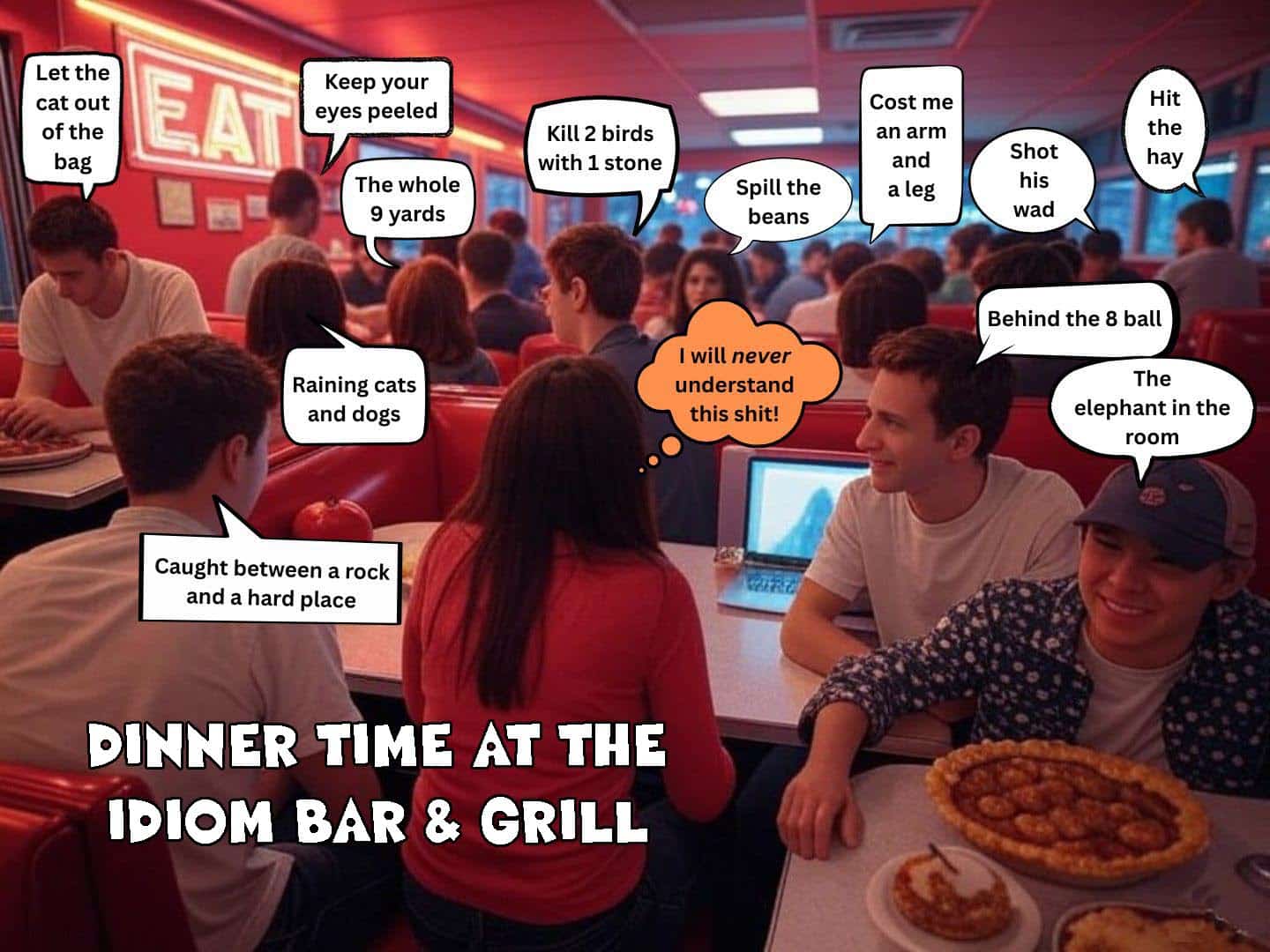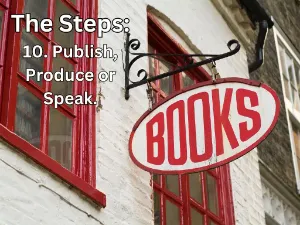
By Michael McKown
So, you’re a ghostwriter, spinning tales or crafting memoirs for someone else, slipping into their voice like a comfy pair of sneakers. Sounds like a sweet gig, right? But here’s the kicker: if you’re not steeped in the culture of the language you’re writing in — say, American English — you’re about to stumble.
Or, you could say you’re about to trip over your own feet.
Cultural immersion isn’t just a nice-to-have; it’s essential. It keeps your writing from sounding like it was run through a bad translation app. And for non-native speakers, the odds of flubbing it are high enough to make you sweat. Let’s unpack why, with a few laughs and some real-life examples.
Ghostwriters channel the client
First off, ghostwriting is all about disappearing into someone else’s world. You’re not just writing; you’re channeling their vibe, their quirks, their way of seeing the world. If your client’s an American, they’re not just speaking English, they’re speaking American English, drenched in cultural baggage. That means idioms, slang, and references that don’t always make sense if you’re not in on the joke.
Take an idiom like “barking up the wrong tree.” If you’re a non-native speaker who hasn’t hung out in the U.S., you might think it’s about actual dogs and trees, not someone screwing up their target. Use it wrong in a client’s memoir, and suddenly their tough-talking CEO voice sounds like a confused botanist. Cultural immersion, which literally means living, breathing, and soaking up the way people talk, helps you nail these phrases without a second thought.
A wisecracking Texas waitress
Let’s paint a picture. Imagine you’re ghostwriting a novel for a client set in small-town Texas. Your main character’s a wisecracking diner waitress. Without cultural immersion, a non-native writer might have her say something like, “Please, take a seat, dear customer!” instead of “Grab a chair, hon, what’s the order?” The first sounds like a robot butler; the second screams Lone Star State.
You pick up that “hon” and the casual swagger from eavesdropping at actual diners, watching Southern rom-coms, or chatting with locals, not from a textbook. Without that, your waitress might as well be serving tea in a British manor, and your client’s gonna notice.
Regional differences
Then there’s the minefield of slang and regionalisms. American English isn’t one-size-fits-all. In New York, you might “stand on line” for a bagel; in California, you’re “in line” for avocado toast. Call a soft drink “soda” in one state, and it’s “pop” or even “Coke” (for any soda) in another.
A long time ago in Oakland, CA, I was making a food-and-drink run for me and my co-workers. I passed out the sandwiches and bottles on my return, including a Coke to one fellow. He looked at it with disdain. “I wanted a Pepsi,” he whined. “But you said Coke,” I answered.
Heard terms in the wild
A non-native ghostwriter, no matter how fluent, risks missing these nuances if they haven’t lived the language. I once read a draft where a non-native writer had a Chicago teen call a sandwich a “submarine” instead of a “sub.” Sounds minor, but to a local, it’s like calling a hot dog a frankfurter, close, but you’re not fooling anyone. Immersion means you’ve heard these terms in the wild, so you don’t make your client’s gritty urban hero sound like they’re reading from a dictionary.
Humor’s another beast. American humor loves sarcasm, deadpan delivery, and pop culture zingers. If you’re not immersed, you might miss the mark. Say you’re ghostwriting a funny blog post for a client who’s a stand-up comedian. You toss in a joke about “knocking it out of the park.” Cool, but if you don’t know that’s a baseball reference, you might use it for a basketball scene, and the client’s readers will cringe.
Pop culture references
Or worse, you lean on humor from your own culture that doesn’t land here. A non-native writer once tried a “funny” line about a character “eating like a horse” in a U.S.-set story, but it came off as literal, not exaggerated, because they didn’t grasp the idiom’s playful vibe. Immersion tunes your ear to what’s actually funny, not just what Google Translate says is a joke.
Pop culture references are another hurdle. Americans pepper their speech with nods to movies, TV, and music. If you’re ghostwriting a memoir for a Gen X client, they might want a vibe that echoes Friends or Seinfeld. Without watching those shows (or at least overhearing baristas quoting them), you’re stuck. A non-native writer might reference a global hit like The Office, but miss that Americans mean the U.S. version, not the British one. Drop a Ricky Gervais-ism in a Steve Carell-loving client’s book, and you’ve just yanked the reader out of the story. Immersion means you’ve binge-watched enough to know Chandler’s sarcasm from David Brent’s awkwardness.
Immersion means idioms are second nature
Now, obviously, non-native speakers can be killer writers. Fluency’s a huge asset, and some bring a fresh perspective that native speakers envy. But without cultural immersion, they’re playing darts blindfolded. Take spelling and grammar quirks, like America’s love for dropping the “u” in “colour” or sticking periods inside quotation marks.
A non-native writer might know these rules but forget to apply them consistently, especially under deadline pressure. Or they might nail the grammar but miss subtler stuff, like how Americans say “I’m good” instead of “I’m well” in casual chat. Immersion makes these second nature, so you don’t have to think twice.
Ghostwriting is about trust
Here’s a real-world flub to drive it home. A non-native ghostwriter once wrote a speech for a U.S. politician, aiming for folksy charm. They had the politician say, “Let’s have a chinwag about jobs!” Problem? “Chinwag” is British slang, not American. The client caught it, and the writer’s rep took a hit. If that writer had spent time in American bars or boardrooms, they’d have gone for “let’s chat” or “let’s talk shop” instead. That’s the power of immersion — it’s like an invisible editor catching your mistakes before they happen.
So, why does all this matter? Because ghostwriting isn’t just about words; it’s about trust. Your client’s handing you their voice, their story, their brand. If you’re not culturally immersed, you risk delivering something that feels off, and your readers or audience will notice. For non-native speakers, the challenge is steeper because American English is a cultural beast, full of traps that only writers with experience – such as a genuine writing consultant — can dodge.
Hire foreign & screw the pooch
Screw the what? Oh, that’s an idiom. Now, what’s the bottom line to all of this? A ghostwriter who grew up in the United States is far more likely to deliver excellent work to the client. Some professional writing services use cheap writers from exotic places such as India, Pakistan, China and the Philippines, and the low price will show in the work.
At Ghostwriters Central, all our contract writers grew up in the United States. They’ve lived a life immersed in the stew of American idioms. And that pays off for American clients.











